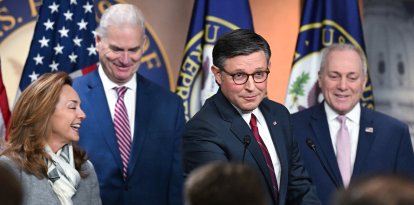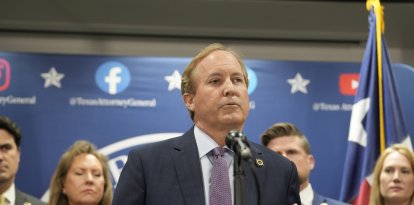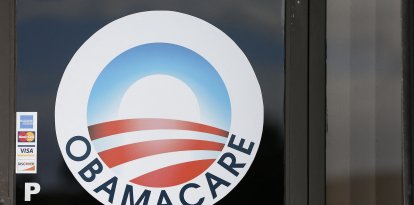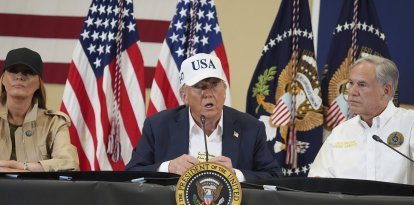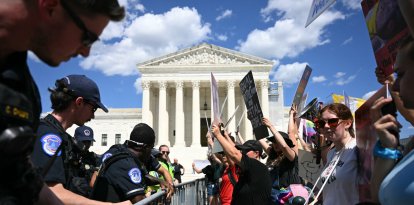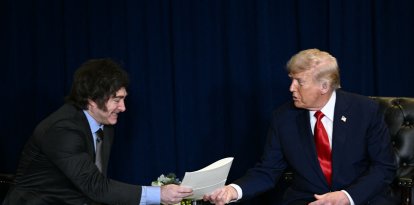Is the 'Kamala effect' real?
After the political and media tsunami triggered to topple Biden and propel Kamala as a candidate, reality and polls question whether it was accurate.
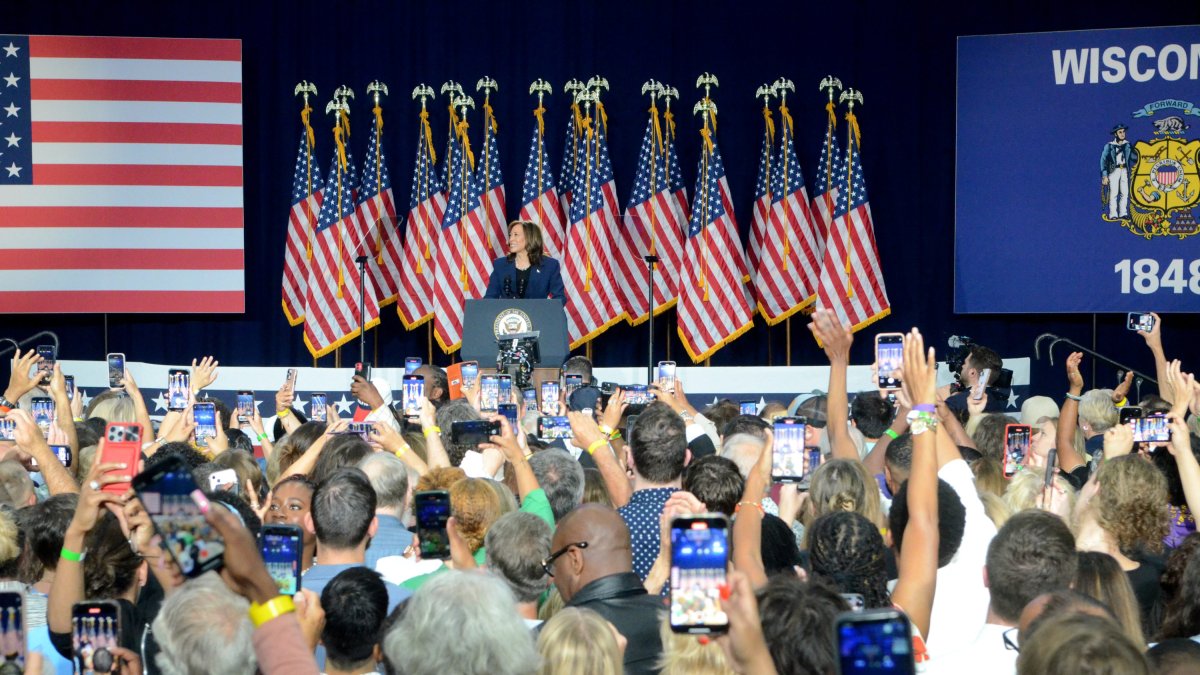
Kamala Harris, at her first rally as a Democratic candidate in Wisconsin
The narrative presenting Kamala Harris as the great savior of the Democratic Party, of Democracy and even of the West after Joe Biden's goodbye, is already full of holes before her official nomination. After the flood of endorsements from lawmakers, ex-politicians, journalists and left-wing celebrities, crowned with the blessing of blue party leaders in Congress and George Clooney last Tuesday, the reality and doubts about her figure and her trajectory again call into question whether she is the right person to face Donald Trump in November.
As the enthusiasm wanes, voices denouncing the "imposition" of Kamala Harris as candidate by the elite of the Democratic Party, without giving voters the option to make themselves heard and participate in the process of selecting the person who will represent them, are growing. The move was so lightning-fast and radical that it gave no time for potential challengers to move. In fact, it was pointed out that all the party notables - such as the Obamas, Nancy Pelosi, Hakeem Jeffries and Chuck Schumer - did not come out to endorse her on the same Sunday when she announced her intention to run for the nomination alone.
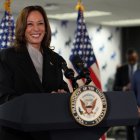
Politics
Kamala unveils her campaign agenda: focuses on abortion and more anti-Trump rhetoric
Israel Duro
Indeed, even Obama, who coined himself as a “statesman” across partisan divides and said he would not speak out beyond calling for an “extraordinary candidate,” ended up riding the Kamala wave in less than a week. First Pelosi, on Monday, while Jeffries and Schumer did so on Tuesday. The same day as Clooney, whose article in The New York Times calling for Biden's goodbye triggered a major political and social earthquake over the need to change Trump's rival in November. The Obama couple ended up giving their public support last Friday.
The tsunami that artificially emerged over Kamala, to try to recover the enthusiasm of some Democratic voters left absolutely despondent after Biden's debate with Trump and the president's subsequent appearances, had critics within the party itself from the very beginning. For example, Sen. John Fetterman - who ultimately endorsed Harris - was very blunt about the Democratic leadership's performance Monday in remarks made to Semaphor reporter David Weigel: "People pushed out an honorable man, loving father and a great president before an absolute sleazeball like Menendez. Congratulations."
Democratic elites rush to shield Kamala
However, past the initial fervor over having a non-Biden candidate, the Democratic environment has begun to think if this is a similar mistake to having kept the president as a front-runner for too long. Just in case, Kamala's campaign and the Democratic National Committee have practically shielded her official nomination by announcing a "virtual ballot" to proclaim her before the party's convention in August.
And highly critical voices have already emerged from the left, such as the Black Lives Matter movement, which denounced the "undemocratic process" that anointed Kamala and denounced the hypocrisy of the blue party, while calling for an open process to the DNC:
"A 24-hour process to talk to party bosses is not democratic, nor is it a process Democrats should be proud of. We do not live in a dictatorship. Delegates are not oligarchs. Installing Kamala Harris as the Democratic nominee and an unknown vice president without any public voting process would make the modern Democratic Party a party of hypocrites. We call on the DNC to create a process that allows for public participation in the nomination process, not just a nomination by party delegates."
Several of the most influential unions in the country, and even some of those who were quick to position themselves behind Kamala, are rethinking their hasty decision after learning some of the names of the alternatives Harris is considering as a possible vice president.
Polls do not support switching out Biden for Kamala
Objectively, the polls do not justify the change at all, since Kamala does not improve Biden's numbers in virtually any poll and even worsens them in some cases and, above all, is defeated in all of them by Trump. In fact, the latest poll published by The Economist/YouGov on July 23 gives a lead of 21 points to the Republican over the new Democratic hope, a point distance he never achieved with respect to his predecessor.
In addition, the analyses of journalists, such as in The New York Times, which pointed to the vice president as the worst possible candidate to replace her election partner, come to light again.
Kamala's campaign to clean up her image a relative success
A trend that began to change last Thursday, coinciding with the aggressive cleanup campaign that the left-wing media and the Democratic establishment have launched since she made public her intention to run for the White House alone, includes the disappearance of reports that placed her as the most radical senator among Democrats (ahead of even Bernie Sanders), as well as corrections of published articles trying to erase the title of Border Czar and therefore the responsibility of the border.
It has also been reflected in polls that bring the democratic candidate closer to Trump, even putting her slightly ahead. The first to do so was Reuters, in a poll that put Kamala ahead by two points. That said, with a sample in which Democratic voters considerably outnumbered conservatives (426-376 and 341 independents). Subsequently, The NYT published, together with Siena, a work that left Harris one point behind the tycoon, and even surpassed him if the rest of the independent candidates were added.
Kamala's 'three strikes' as a candidate
- Her discovery of Biden's mental condition and failure to act under the Constitution by invoking the 25th Amendment in the face of the president's manifest incapacity.
- Her clamorous failure as border czar, allowing record arrivals of illegal immigrants into the country, along with an increase in fentanyl and other drug trafficking, as well as for allowing cartels to move with impunity through the area.
- Her career has been the result of affirmative action (DEI) policies and not due to her merits.
The first point, moreover, implies another of her weaknesses in facing Trump: she was part of the Biden Administration, and much of the support for conservatives in the polls comes from rejection of the Administration's policies during her three and a half years in office both in economy, immigration policy, foreign policy and energy.
In addition, her left-wing radicalism may end up scaring moderate Democratic voters. Something that is reflected in her soft stance on criminals, on issues such as LGBT ideology or her support for sex-change procedures for minors. Although many in her party praise her position on abortion, there is no shortage of those who consider it excessive, as she is an advocate of abortion without limits.













